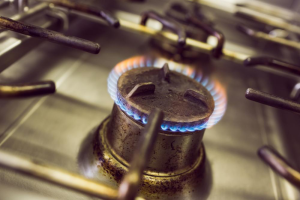Our furnaces, water heaters, ranges, and clothes dryers are some of the most important and regularly used appliances that use gas.
However, like most fuels, natural gas can prove to be dangerous if not handled safely. Gas pipes are susceptible to wear and tear, damage, and corrosion. According to the National Transportation Safety Board’s reports, explosions caused by gas leaks and pipeline accidents are common enough to warrant stronger safety measures.
Here’s a definitive guide to preventing gas leaks.
Replace Old and Worn Gas Fittings
Like any piping that is used on the regular, gas lines deteriorate over time. It’s important to be mindful of this to avoid an unwelcome incident. If the infrastructure of your gas lines is old and turning decrepit, you should seriously consider replacing the line fittings and fixtures. This will maintain or even improve the gas lines’ integrity.
Such a task is best left to a professional gas line repair service. Replacing gas line fittings isn’t as simple as replacing a light bulb. A mistake may cost you heavily.
Replace an Old Shutoff Valve
Just as the fittings on your gas line can corrode and deteriorate over time, so can the shutoff valve placed in your furnace. It’s usually good practice to replace your valve when you replace your furnace. However, even if you aren’t doing anything to your furnace, you should consider replacing the shutoff valve if it’s been a while since you’ve done so.
Conduct a Bubble Test for Potential Leaks
In the event that you suspect a gas leak, you can perform a bubble test to confirm your suspicions. Mechanics often use bubble tests to check for punctures in tires and inner tubes. The principle is the same.
This is what you need to do:
- First, mix a little dish soap into a tub or a similar container of water.
- Make sure that the gas is turned on.
- Wipe the suspected leak area with a sponge or cloth.
- If bubbles start to form when you do this, you definitely have a leak.
General Gas Appliance Safety
Some important safety measures that homeowners should take when using and handling gas appliances are:
- Always hire a professional plumbing service to install and test any new gas appliance.
- Annual inspections and maintenance of gas appliances should also be conducted by professionals.
- Never place or store combustible or flammable items or products near gas appliances, furnaces, and water heaters.
- Avoid blocking gas appliances.
- Never use ranges and stovetops to heat a room.
General Water Heater Safety
All water heaters are required, according to the Uniform Plumbing Code, to be installed on stands that are at least 18 inches in height and have seismic supports.
Many water heaters have an open pilot that heats up the water. It’s crucial that the gas vapors are allowed to dissipate.
Water heaters that use natural gas also require proper venting accommodations so that the gas vapors can escape outside the home. Proper venting ensures that carbon monoxide (CO), an extremely harmful gas, isn’t allowed to build up in the home.
Stay safe and contact a professional plumbing service to repair your gas line swiftly and securely.
We have been providing Fort Worth, Arlington, and other areas in Texas with expert gas line repair services for 15 years! Drop us a message today to get an estimate and an appointment. Or call us at 817-244-0614.


